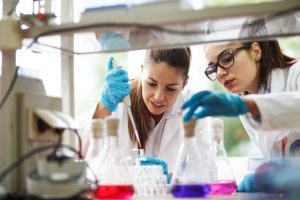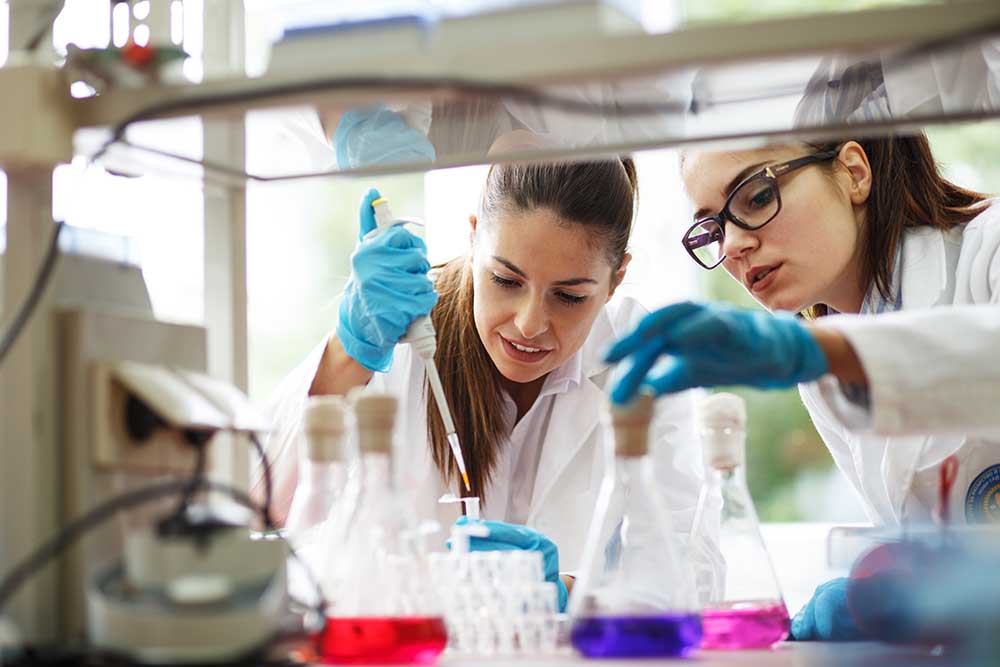Disclaimer: The information on our website is provided for general information purposes only. We make no representations or warranties of any kind, express or implied, about the completeness, accuracy, reliability, suitability or availability with respect to the website or the information contained on our website for any purpose. Any reliance on such information is therefore strictly at your own risk and we are not liable for any damages or losses arising out of or resulting from your reliance on any information contained on our website.
A lab technician analyzes samples such as body fluids and chemicals. Additionally, they assist scientists and medical personnel to conduct and document tests. Next, watch a video to learn more about this career field.
How to Become a Lab Technician

When looking to become a lab technician, there are a number of things that you will need to do. You will need to get educated and trained in the field. You also need work experience to get a feel for what you’ll be doing everyday. It will also be important to know exactly what particular type of lab technician job you want to get. By focusing on these things, you will be in great position to have a successful career as a lab technician.
The most efficient way to become a lab tech is to attend a community college and focus on science. Programs last about two years and with a degree, you will be in a position to get a job as a lab technician upon graduation. During your course of study, you will learn about things such as how to manage a lab, what tasks you will be doing as well as what you will be testing in a laboratory environment.
You will also take science courses so that you are familiar with the basic fundamentals of experiments and procedures. It is important to note, that depending on what type of lab you would like to become a technician in, you should determine what type of major you choose. For example, if you want to work in a medicinal lab, it would be more beneficial to receive a degree as a medical laboratory technician as opposed to a forensic laboratory technician.
Internships
As well as getting educated in lab technology, it will also be important to get an internship which will give you some much-needed work experience. When looking to get an internship, it will depend on which career path you want to choose. Those that are looking to work in the science fields of biology and chemistry will want to get a job at a technical and scientific company such as ones that specialize in biotechnology. Anyone that is looking to get into the healthcare industry will benefit by getting an internship at either a hospital or medical clinic. These are the most common internship opportunities that aspiring lab technicians complete when preparing for a career in this field.
Employment
Once you complete your internship, the next step will be to get your first job. There are a number of starter jobs you can get when looking to become a lab technician. For example, at LOC Scientific, to become an entry-level lab technician, one must have done two things: completed an internship in a laboratory and have received a degree in a related field.
However, the most common type of job you will get is that of either an entry-level clinical lab technician if you pursue a career in healthcare or a lab technician if you work in the scientific fields. Both of these jobs will give you a start in the field and experience to build upon throughout your career. Fortunately for those who are looking to become a lab technician, these jobs are quite attainable once you complete an associate’s degree in clinical lab technology.
Like many other careers, lab technicians can benefit by having certain hobbies. In order to have a promising career as a lab technician, you will want to be someone who is very interested in science. Fields such as biology and chemistry should be subjects that you have a strong interest in. Along with being very interested in science, it will also benefit you to like doing experiments and having a very curious mind about scientific samples. With these hobbies, you will be in great position to have the necessary interests and abilities to get into this exciting field. These hobbies will also help enhance your aptitude for this career as well.
Lab Technician Career Video Transcript
When a doctor orders a series of tests on a patient, it’s the job of medical and clinical laboratory technologists and technicians to prepare and perform those tests to help detect diseases or abnormalities. These professionals analyze body fluids, tissue, and cells. Using powerful medical equipment, they look for bacteria, parasites, and abnormal cells. They also analyze cholesterol levels, and cross-match blood samples for transfusions, documenting their results in reports or patient medical records.
Since they regularly handle samples and medical instruments contaminated by infectious microbes, they wear protective goggles, gloves, and masks to minimize the risk of contagion. In larger labs and hospitals, technologists and technicians tend to specialize in areas like blood work or microbiology. Most work full-time. In general, technologists supervise the work of technicians. Technicians need an associate’s degree in clinical laboratory science, and technologists need a bachelor’s degree in medical technology or life sciences.
Licensure is required in some states, and certification is often preferred by employers. The work can be stressful, especially when they must perform complex tests accurately and in a limited time. However, they gain satisfaction from knowing they’ve provided the vital information doctors need to save lives or cure diseases.
Article Citations
Bureau of Labor Statistics, U.S. Department of Labor, Occupational Outlook Handbook, Medical and Clinical Laboratory Technologists and Technicians.
National Center for O*NET Development. 29-2012.00. O*NET OnLine.

